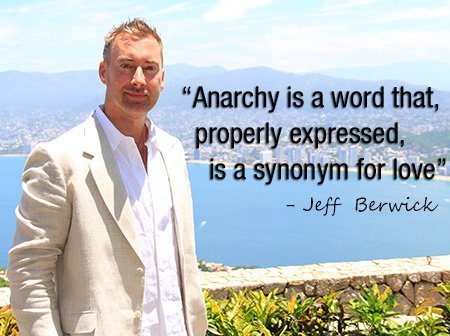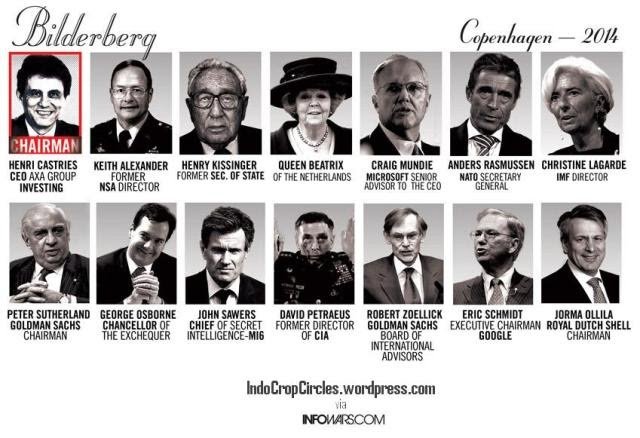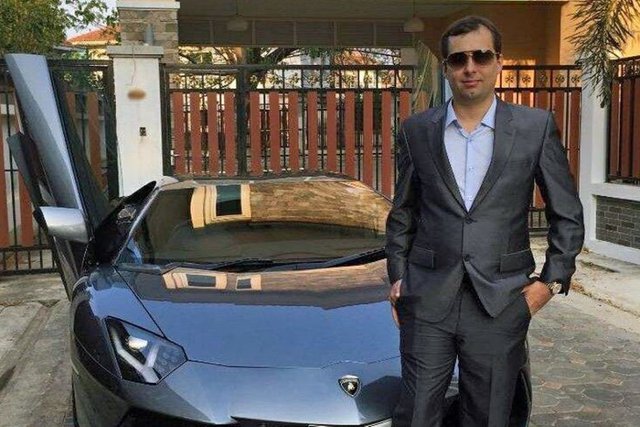Has Blockstream Been Bought And Paid For By The Globalist Cabal?
Is Blockstream actively trying to undermine and subvert Bitcoin as a globalist tool for economic control by making it unusable for every day commerce?
According to Jeff Berwick of the Dollar Vigilante, that is a strong possibility.
While I don't necessarily agree with his assessment (for reasons I shall state in this article,) I'm often surprised by how closely my political and economic beliefs align with Mr. Berwick's.
He takes it one step further by calling for the total abolition of government, but I too believe in limited government intervention and laissez-faire, free market capitalism.
I like Bitcoin because it gives me the option of actually holding my own money and spending it as I see fit, rather than delegate ownership of my assets and become depend on the fiduciary trustworthiness of some institution with a spotty history of financial impropriety, i.e., pretty much every single bank in existence.
I also share the Dollar Vigilante's skepticism toward the notion of 'nationality' and 'nationalism.' Governments view their citizens as little more than tax cattle. Plain and simple. Countries 'allow' the movement of Human capital from one tax farm into another within the narrow confines of archaic visa regulations, but at the end of the day, all we get to choose is which corrupt government gets to extorts us for our hard-earned money.
So, and despite the Dollar Vigilante's prediction for total economic collapse in the Fall of 2016 not coming to pass, I generally enjoy Mr. Berwick's style of delivery, and respect his opinions as a political and economic commentator.
Still, on the topic of Blockstream, I think the current implementation of Bitcoin has a more diverse team of developers than any other project in the cryptocurrency space.
To be sure, I find it deeply unsettling that Blockstream accepted and received $55 million in VC funding from Axa Strategic Ventures, given that the the CEO of that particular organizations also happens to be the current Chairman of the Bilberberg Group.
Perhaps they were hedging their bets ala Peter Thiel (who has been acquiring Bitcoin since at least 2012,) just in case crypto renders the legacy financial system obsolete.
Perhaps so, but an equally plausible explanation is that it is a covert attempt to subvert the project's original goal of creating a censorship-resistant, peer-to-peer electronic currency based on sound economic principles.
It would be naive not to entertain such a theory, but the reality is pretty much every single project in existence is centralized to an extent even beyond what we current see in Bitcoin.
Take Monero, for instance. It is my favorite cryptocurrency (even ahead of Bitcoin,) as it is the perfect digital abstraction of the century-old notion of fungible cash in the form of metal coinage and paper bills. Cash, as the saying goes, "doesn't talk," and affords people a level of privacy unthinkable in the banking system and credit card transactions.
Unlike the Bitcoin blockchain, which allows anyone full access to the entire record of transactions going back to its inception on January 9, 2009, the current implementation of Monero obfuscates not only the identities of both the sender and recipient, but also the amounts being transacted.
One doesn't have to look any further than the take-down of the drug website Alphabay, and its Lambo-wielding, playboy operator, Alexandre Cazes, to see that the technology has proven it can protect users' privacy even against the prying eyes of violent government agencies, with unlimited budgets and resources.
Despite managing to take down the site, and forcing its operation to take his own life, authorities weren't even able to ascertain Mr. Cazes' holdings in the anonymous cryptocurrency, and had to include 'an unknown amount of Monero' amongst a series of precise listings (almost with decimal place precision) of the fallen kingpin's stash of other cryptocurrencies like Bitcoin, Ethereum and ZCash.
This to me indicate that Riccardo Spagni, a.k.a., fluffupony, and the rest of the development team, can be trusted to deliver a quality product capable of withstanding the highest levels of scrutiny by a joint task force composed of the FBI, the DEA, and Europol.
Yet, I'm not naive to the point of thinking any government worth its salt wouldn't be able to subvert the project by simply exerting physical violence against Mr. Spagni and the rest of the development team. It's very hard to remain committed to one's ideals when a powerful entity threatens your safety, and that of your family. The same holds true for Charlie Lee with Litecoin, Vitalik Buterin with Ethereum, and the heads of countless other projects.
Why go through such a circuitous route of founding your competition, when you can simply coerce them into doing your evil bidding? Given the government's ability to simply make political dissidents 'vanish,' and given the NSA's vast arsenal of zero-day exploits and advanced hacking tools, one would imagine they'd prefer to employ more direct tactics than simply making Bitcoin unusable as an every day currency, by bogging down the network, and making it as slow and expensive as possible.
The only we can ensure we achieve our vision of a more equitable economic system offering people the ability to control and manage their own money, is to keep a vigilant eye on the source code for these projects, to make sure no nefarious changes to the protocols we all use and love gets through, and to educate newcomers about the libertarian philosophy behind cryptocurrencies.
There's nothing inherently wrong with the notion of making money. Indeed, the principle of choice and free enterprise forms the basis of free-market capitalism, but I feel it's our duty to make it clear that there's more to crypto than just flipping ICOs, or looking for the next 100x-bagger.
"Come for the fiat gains, stay for the Austrian economics!" - Let's make this the new motto for crypto investing!







could be bro hope not .Great content btw following you be sure to check me out as well.